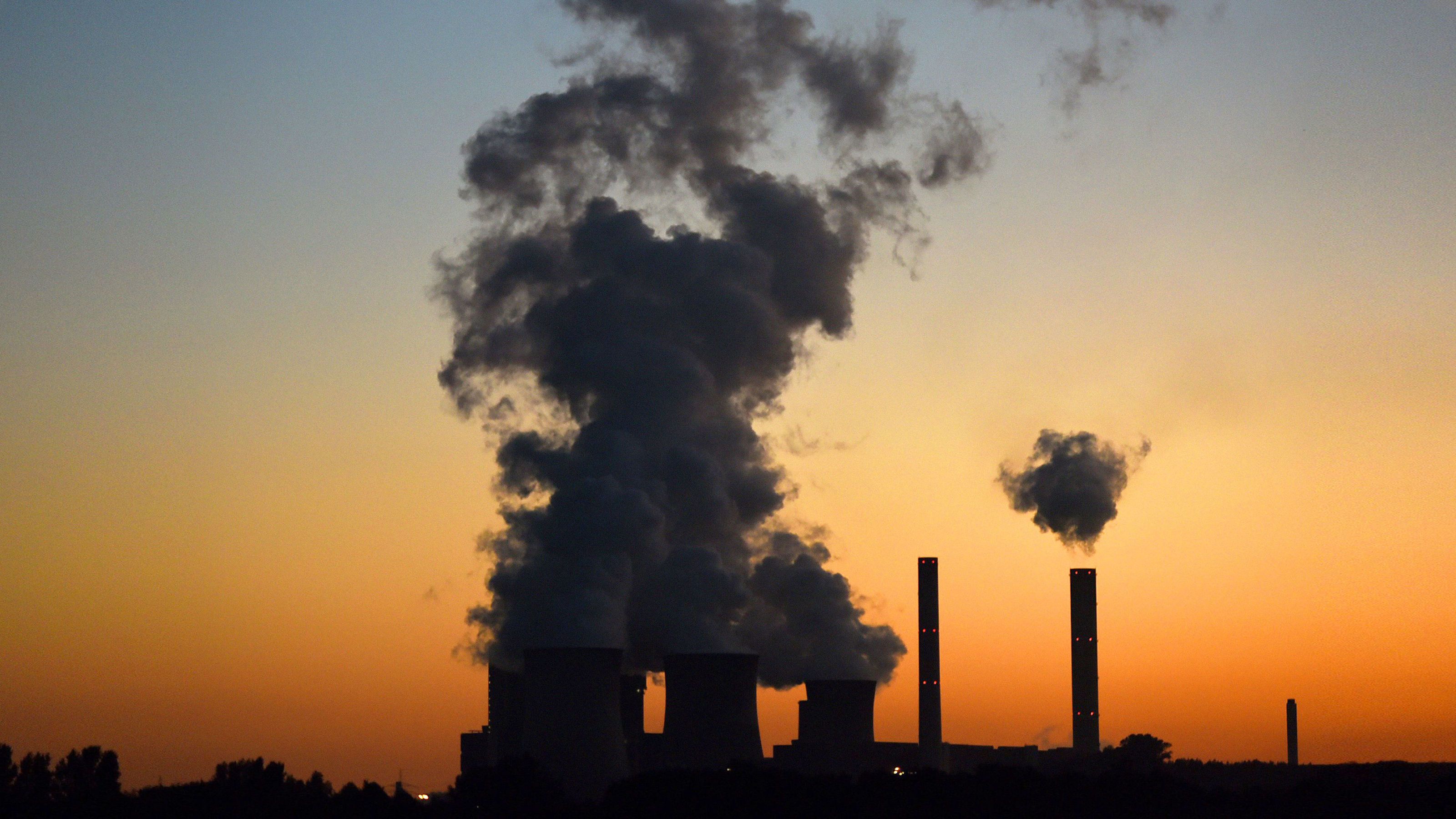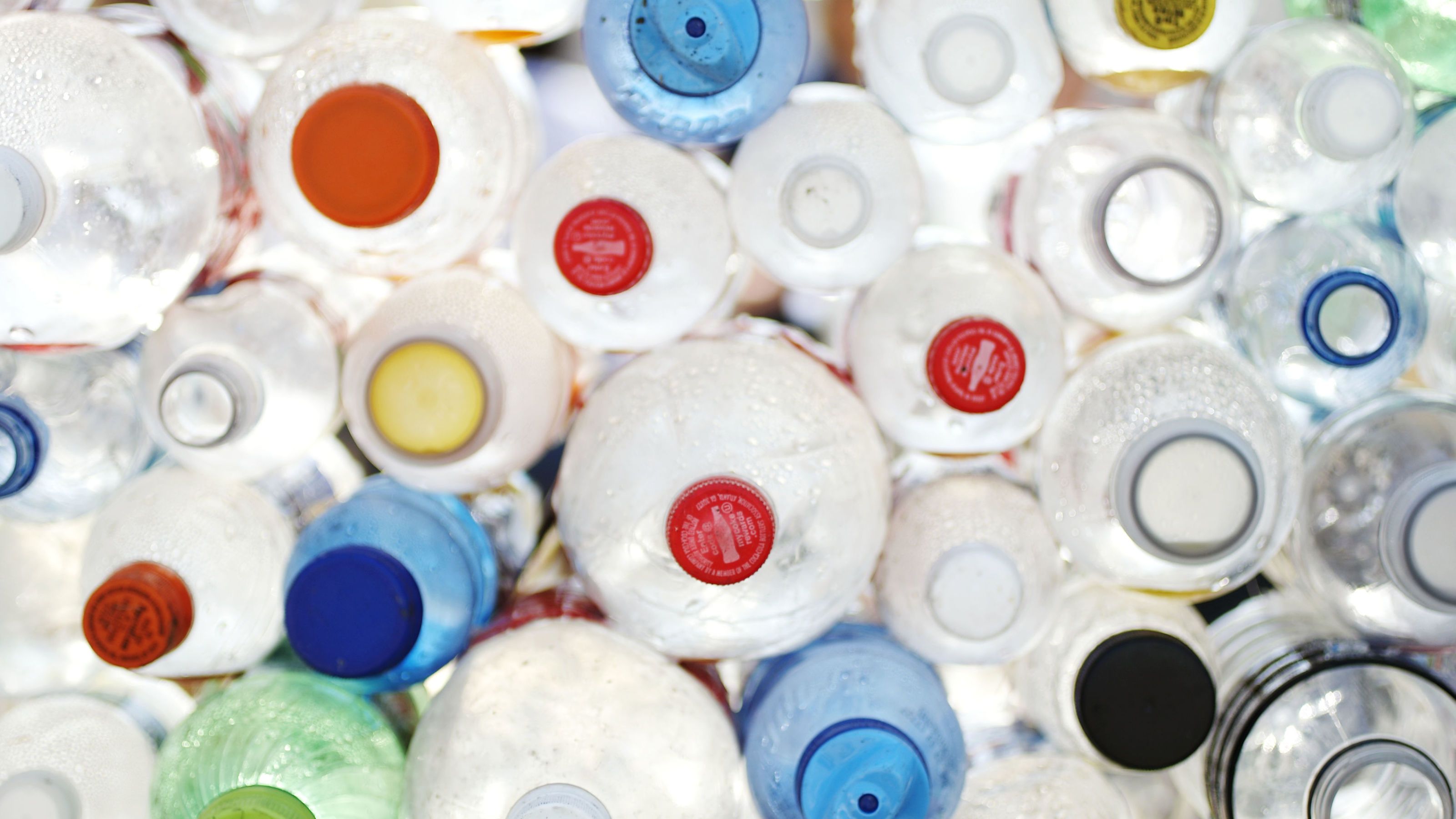8 Things Every Single Woman Should Be Doing Right Now to Counteract Climate Change
If our government won't do it, we have to.

There's no point in sugarcoating it: 2016 was the Earth's hottest year on record. Scientists say our planet will only get warmer over time because of human-induced climate change. Fears about our environmental future feel like they're at an all-time high.
And yet, in the face of it, President Trump has called global warming a "hoax," installed an Environmental Protection Agency director who doesn't believe in climate change (and who has sued the EPA 13 times), and rolled back 23 environmental rules in his first 100 days.
If our government is backing down on trying to save the world we live in, we have to stand up. And if we all make these small changes, we might just be able to turn things around.
1. Actively cut back on the needless paper and plastic in your life.

Here's a not-so-fun fact: The U.S. uses more paper products than any other country *in the world*. And plastic? We discard about 33.6 million tons of it—but only 6.5 percent is recycled and 7.7 percent is combusted in waste-to-energy facilities. The rest goes straight into landfills, which means incineration—resulting in the release of greenhouse gas, carbon dioxide, and other air pollutants.
You can start counteracting climate change by eliminating as much excess paper and plastic from your daily routine as possible—which means switching to reusable products instead. Beyond ditching the disposable water bottles for the longer-lasting kind and bringing your own canvas tote to the grocery store, you can and should be buying reusable sandwich bags, straws, food wraps, and even coffee filters.
2. When it comes to beauty, shop smarter.
There is so much excess packaging with makeup products these days—all that extra material goes straight into the trash, where it contributes to landfill and pollution problems. Try to patronize more packaging-conscious brands like Lush, which sells 35 percent of its products with no packaging at all.
3. Use Amazon's best-kept secret.
You might be an Amazon Prime fiend, but did you know that the company has a convenient donation program that helps you recycle wares you no longer want? Here's how it works: Print out a shipping label from GiveBackBox.com; fill your Amazon boxes with old clothing, accessories, or household items; drop them off at UPS or the U.S. Postal Service; and they're on their way to a local charity. It's that easy. (Don't have any boxes? Host a clothing swap or donate to your local shelter instead.)
Get exclusive access to fashion and beauty trends, hot-off-the-press celebrity news, and more.
4. Put your vote where your mouth is.
[contentlinks align='left' textonly='false' numbered='false' headline='Related%20Stories' customtitles='EPA%20Removes%20Climate%20Change%20Info%20From%20Their%20Website%7CCan%20the%20Fashion%20Industry%20Help%20Save%20the%20Planet?%7CA%20Close%20Look%20at%20Donald%20Trump\'s%20Cabinet' customimages='||' content='article.26897|article.22093|article.23922']
Vow to only vote for candidates who believe in and prioritize climate change. (And hey, talk about it publicly and on social media while you're at it—the more people who make this promise, the more our representatives will have to listen.) Use Pro Publica's tool Represent to track lawmakers, votes, and bills. Meanwhile, FiveThirtyEight is scoring each member of the House and Senate in the age of Trump—if you find something you don't like, write to your legislatures and demand change. (Find contact info for members of the House here; and details on your senators here.)
Local elections are just as important. Get behind candidates who support initiatives to make your city greener. Who wants bike lanes? Who's advocating for a community garden? Who's investing in public transportation? These are the questions to research before you head to the polls. And people, please head to the polls.
5. Become a "reducetarian."
You've heard it time and time again: Livestock is a major contributor to greenhouse gases. But if you think your only option is to become a vegetarian, you're wrong. Research out of the UK last year found if we all follow a diet that fits within the global dietary guidelines—that's no more than 300 grams of red meat per week, says the study— we could cut global food-related emissions by nearly a third come 2050. That lifestyle is called reducetarian, and it's backed by a dedicated community of environmentalists. Try it.
6. Stop. Wasting. Water.

Did you know you can calculate the water footprint of pretty much every meal you ever wanted to make? And water is obviously *hugely* important when we're talking about environmental concerns. In 2015, the UN predicted serious global water shortages by 2030, which is right around the corner. So it's time to stop wasting it. For starters, you can buy rain barrels, cut your showers short, and embrace drought-tolerant plants.
7. If you have kids, talk to them.7. If you have kids, talk to them.
We know the change has to start with us—but we also have to make sure that the next generation is even more eco-conscious than we are. Make it a point to show kids (yours, your friends', your relatives', any kids) Bill Nye videos about global warming or climate change. Read from this stellar list of children's books. But the easiest way to get kids to care about the environment is to get them outdoors. The more they experience nature, the more they'll want to preserve it.
8. Find your kind of environmentally conscious people.
Maybe it's friends who like forest baths or a couple of co-workers who are down to carpool. It could be this podcast that tackles tough climate change choices through a productive lens. Either way, try to find people who care about the environment even more than you do—and follow their lead.
Marie Claire creative director Nina Garcia recently visited the glaciers in Alaska to witness the alarming effects of climate change and to ask if the fashion industry can be part of the solution—watch her journey here:
Follow Marie Claire on Facebook for the latest celeb news, beauty tips, fascinating reads, livestream video, and more.